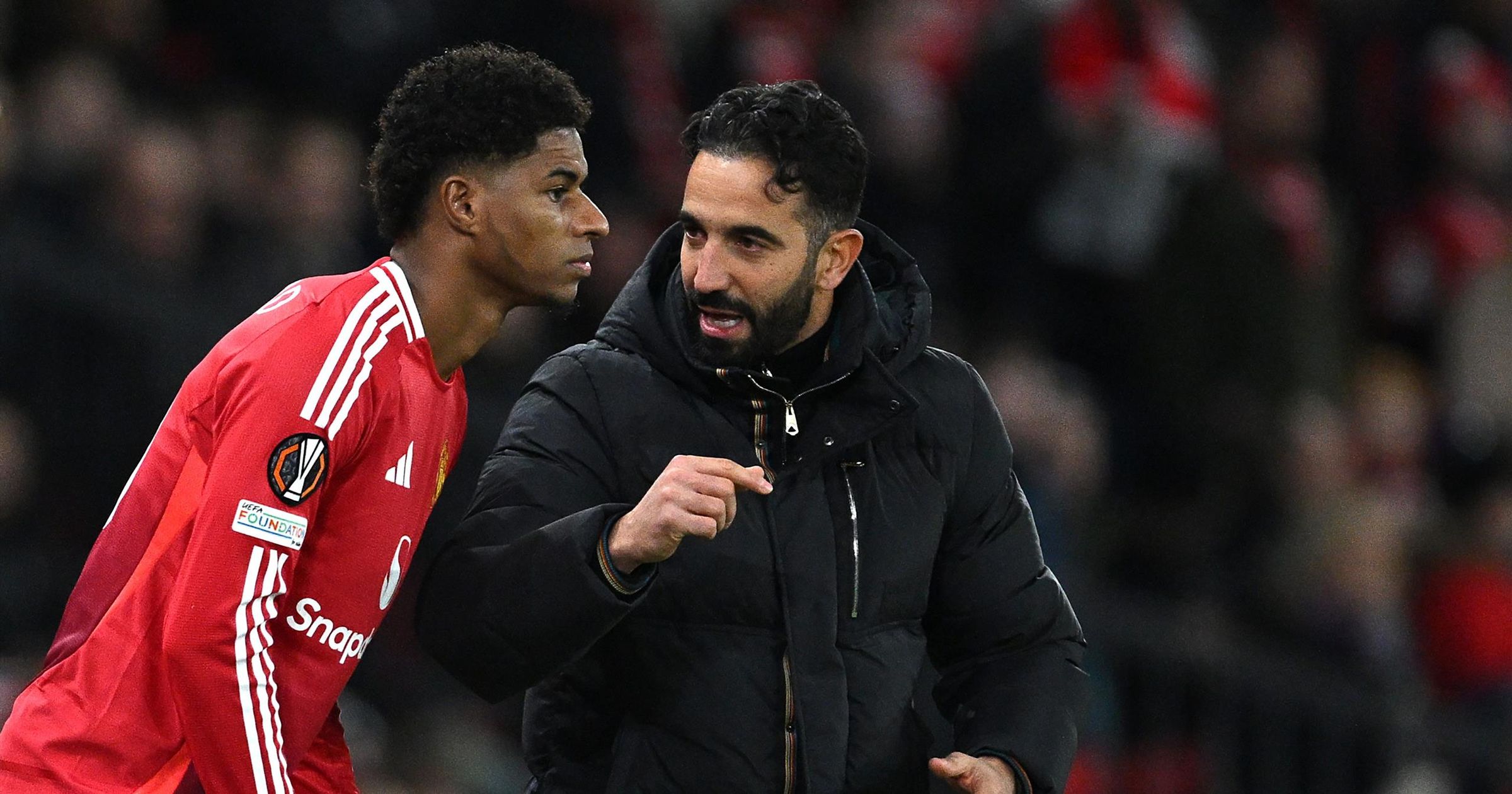Sports
Marcus Rashford unlikely to play for Man Utd again, and why the club didn’t sign a striker – Paper Round

Rashford’s United Career Appears Over
Marcus Rashford’s time at Manchester United seems to be drawing to a close, as he has joined Aston Villa on a loan deal until the end of the season. The England international, who still has a contract with United until 2028, is unlikely to return to Old Trafford in a competitive capacity. Barcelona is also reportedly interested in signing him permanently this summer, which further suggests that Rashford’s United career is all but over. The relationship between Rashford and the club has reportedly deteriorated to a point where it is described as “near irreplaceable,” even though Ruben Amorim is no longer the head coach.
However, there is a small chance that Rashford could play for United again in pre-season if Amorim leaves. Jadon Sancho’s situation last summer offers some precedent, as he and Erik ten Hag managed to reconcile after a fallout, leading to Sancho playing in warm-up games before eventually joining Chelsea on loan. For now, though, Rashford’s focus will be on performing for Aston Villa, and United has made no provisions for a recall clause in his loan deal. Amorim has denied that it would be embarrassing for United if Rashford excels at Villa, but the situation highlights the ongoing challenges in the club’s forward planning.
United’s Cautious Approach in the Transfer Market
Manchester United’s decision not to sign a forward in the January transfer window has raised eyebrows, especially given Marcus Rashford’s departure and lingering doubts over Rasmus Hojlund’s role. However, the club remains satisfied with their transfer business, having opted not to take “reckless or expensive risks” in pursuit of a striker. United’s focus on financial prudence and long-term planning led them to resist high loan fees for unproven young players, such as Mathys Tel and Christopher Nkunku, whom they reportedly enquired about but ultimately deemed too costly.
The club’s stance reflects a broader strategy to conserve resources for the summer window, where they believe better opportunities exist to sign players who align with their long-term vision. United’s financial constraints, including adherence to Premier League Sustainability and Related Rules (PSR), have limited their spending capacity, and they are prioritizing cost-cutting measures to free up funds for future investments. The arrivals of Patrick Dorgu and Ayden Heaven, though lower-profile signings, demonstrate United’s commitment to nurturing young talent while maintaining fiscal discipline.
Newcastle’s Summer Plans Take Shape
Newcastle United is preparing for a busy summer transfer window, with reports suggesting they could spend up to £100 million on new signings. The club’s ability to invest heavily stems from a number of exits during the mid-season window, including Lloyd Kelly’s loan move to Juventus, which could become a £20 million permanent deal, and Miguel Almiron’s return to Atlanta United for around £9 million. These departures have freed up resources, allowing Newcastle to focus on strengthening key areas of their squad ahead of next season.
The Magpies are reportedly targeting a center-back, a right-winger, and a striker, with potential targets including PSV Eindhoven’s Johan Bakayoko, Southampton’s Tyler Dibling, and Bournemouth’s Ilya Zabarnyi. These signings would not only bolster Newcastle’s first team but also provide depth and quality ahead of a potential Champions League campaign. The club’s summer strategy will depend on whether they secure European football, with both a “Plan A” and “Plan B” being developed to address different scenarios.
Transfer Window Round-Up: Key Moves and Rumors
The January transfer window saw several notable moves that could have long-term implications for the clubs involved. Aston Villa confirmed the loan signing of Marco Asensio from Paris Saint-Germain on deadline day, adding depth to their attacking options. Meanwhile, Arsenal and Barcelona are rumored to be interested in Newcastle’s Alexander Isak, whose future at St. James’ Park hinges on the club’s ability to secure Champions League football. Isak’s impressive form, with 17 Premier League goals this season, has made him a hot property in the transfer market.
Should Isak depart, Newcastle is said to be targeting Justin Kluivert as a potential replacement. Kluivert, who has scored 11 Premier League goals this season, has emerged as one of the standout performers for Bournemouth. His father, Patrick Kluivert, is a legendary figure in Dutch football, and Justin appears to be following in his footsteps. Arsenal is also monitoring the situation, as they weigh up their options for the summer transfer window. These developments highlight the dynamic nature of the football transfer market, where clubs are constantly adapting to changing circumstances and future uncertainties.
The Bigger Picture: Clubs Balancing Ambition and Financial Reality
As the football world continues to evolve, clubs like Manchester United and Newcastle are navigating a delicate balance between ambition and financial responsibility. United’s cautious approach in the transfer market reflects their commitment to long-term sustainability, even as they face pressure to compete with rival clubs. Meanwhile, Newcastle’s potential £100 million spending spree in the summer underscores their determination to solidify their position as a top-tier club, both domestically and in Europe.
However, these decisions are not made in isolation. The uncertainty surrounding Marcus Rashford’s future at United, the potential departure of Alexander Isak from Newcastle, and the ongoing pursuit of young talent like Kluivert and Bakayoko all point to the complexities of modern football management. Clubs must weigh short-term needs against long-term goals, all while adhering to financial constraints and adapting to the ever-changing landscape of the sport. This transfer window has provided a glimpse into the strategic thinking of these clubs as they work to build for the future while addressing immediate challenges on the pitch.











